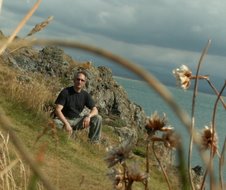Cras
Have you ever wondered what is the difference between now and tomorrow? It’s not just twenty-four more hours. It’s not a petulant child’s cheeky “Tomorrow never comes” answerback to a task promised but never delivered. It’s the infinite scope for change. The endless potential of what might be. The paradox of tomorrow’s indeterminate possibilities is that they all begin with now. The choices I make now, walk or ride, my next step, deciding to be nicer to people, letting loose that sarcastic jibe, scribbling this article, they all determines my future.
Leo Sayer sang "Tomorrow is the first day of the rest of your life”. This is procrastination. There is only one point in time that change can happen, that is now. Could I change my life tomorrow? Possibly. But, if really want to change my future, that change starts immediately. If the future is mutable and now is when change happens, then what of the that which has already occurred? The past has a vital place in our lives, it acts as a guide. Prior experiences provide the basis for current judgments, actions, reactions and outcomes. Being cognisant of the past and being aware of how it effects us in the present allows us to make a conscious choice about what happens next, about change.
Sometimes, though, the path to tomorrow is outside our conscious control. A relative dies and leaves an unexpected fortune, you boarded the wrong London bus on the 7th July 2005 or a myriad other events beyond calculation or prediction. But, having arrived at an unexpected future, how we adapt to it certainly can be within our influence.
If the only certainly in life is change. The corollary is skilfully summed up in Reinhold Niebuhr’s 'Serenity Prayer'
A bit religious for my taste - but the essence, even in my secular world, holds an inescapable truth. Finally, lest there be any misapprehension that I have achieved a state of self awareness that would allow me to manage change in a sane & sensible fashion I quote my old Latin master who quipped “Today’s Latin scholar is tomorrow’s crass idiot”. He was a man with a fine eye for a pun and a solid pragmatism.
